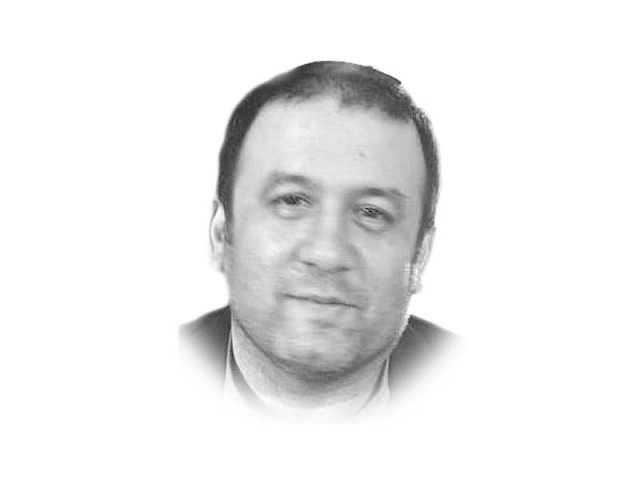Anatomy of the National Action Plan — II
The state must engage filmmakers to create movies that explicitly showcase the narrative of tolerance

The writer works for the Punjab Information Technology Board. He is a graduate of the
University of Warwick, UK
Given the cancerous nature of the problem, ground operations would, at best, severely degrade the terrorist’s ability to strike at will. This is already evident as the frequency of terrorist attacks has decreased significantly. In my last piece, I had mentioned that the National Action Plan (NAP) should, holistically speaking, encompass ground operations, systemic reforms and dissemination of an anti-extremism discourse. Reforms should zoom in on three key areas. The criminal justice system, education and the madrassa/mosque network. Reforming the criminal justice system would mean reengineering process to enable the police to successfully prosecute terrorists, forensic capacity building to improve the quality of the investigation, training and arming the police adequately and a credible witness protection programme. The dilapidated thana needs a serious facelift to restore public trust in the ability of the police. Information technology can come really handy in digitising thana records, maintaining a central database of criminals accessible to thanas across Pakistan and connecting multiple law-enforcement agencies into a monolith to facilitate real-time exchange of information. The Punjab Information Technology Board has made significant strides in automating the policing realm in Punjab.
Reforming education is a different beast altogether, given the massive scope of the undertaking. There are more than 50,000 public-sector schools in Punjab alone. The need of the hour is to have the curriculum standardised across Pakistan and dubious sections on religion and Pakistan history expunged. We have to strike at the roots of the problem and that can only be done if we start engaging our young who are most vulnerable to brainwashing. In addition, we have to disseminate a curriculum that encourages questioning, tolerance, co-existence and conformance to law. Ideally, the books taught in the private-sector schools should be no different from those used in the public sector. Our schooling system itself is contributing massively to polarisation in society, erecting barriers between those who speak English and those who can’t. This bears on their ability to hunt opportunity and a failure on that count breeds discontent and anger. Reforming the madrassa/mosque network is, simply speaking, greater state control over who is taught and what is taught. The funny thing is, we always look for a doctor who is appropriately qualified with a degree from a respectable institution, but completely blink away the implications of leaving our people at the mercy of unqualified imams and clerics running mosques and madrassas who relentlessly indoctrinate the young and old with their skewed interpretations of scripture.
Lastly, there is the question of how best to go about building an anti-extremism narrative and then disseminating it effectively. We must first define the key themes that we wish to wrap our narrative around. The themes could be co-existence with other faiths, tolerance-sect differences, nationalism, glorification of our martyrs and unequivocal condemnation of terrorists through all media forms, promoting the heroes of Pakistan regardless of their field or creed, and so on. We also need to engage religious moderates and have them craft answers to some really contentious issues like jihad, blasphemy and so on, and then have these disseminated through the Auqaf mosques to start with. There are 400 such mosques in Punjab alone. The imams of these mosques are state employees and must be made subservient to the state line. Imagine the footfall in these mosques five times a day and then the faithful going back to their families, carrying with them the message from the mosque. It is a long-drawn process but it must start now.
We can target the rural population through the medium of Punjabi movies. Meaning the state needs to engage filmmakers to create movies that explicitly showcase the narrative of tolerance. The NAP’s dimensions of reforms and narrative-building seem intimidating for sure, for their sheer intricacy, breadth of scope, diversity of stakeholders, all warranting a breathtaking degree of coordination and intellectual effort. That said, the idea of a dedicated body, Nacta, was mooted precisely to tackle this complexity. Fighting extremism is much more than guns and tanks. It is actually a battle to win hearts and minds. We need to move rapidly on manning, equipping and empowering Nacta to steer NAP forward.
Published in The Express Tribune, May 13th, 2016.
Like Opinion & Editorial on Facebook, follow @ETOpEd on Twitter to receive all updates on all our daily pieces.














COMMENTS
Comments are moderated and generally will be posted if they are on-topic and not abusive.
For more information, please see our Comments FAQ